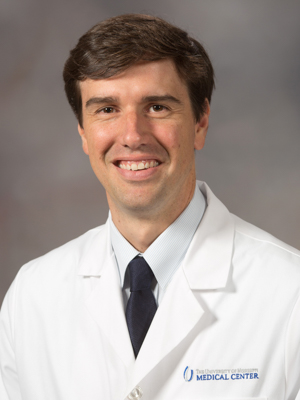Act early to decrease your risk of heart failure
The bad news: Heart failure is the most common cause of hospitalization in this country and accounts for billions of dollars in annual health care costs.
The good news: Mississippians can take steps to decrease their risk of occupying one of those hospital beds by living a more heart-healthy life.

“The best care for heart failure starts with heart failure prevention,” said Dr. Donald “Trey” Clark, associate professor of cardiology at the University of Mississippi Medical Center. “A heart-healthy lifestyle is key to reducing risk of heart failure.
“Healthy lifestyle habits include not smoking, regular exercise, moderate alcohol intake, consumption of fruits and vegetables, and maintaining a healthy body weight,” Clark said.
Clark cited a significant study with more than 20,000 participants that showed healthy lifestyle habits significantly reduced the risk of developing heart failure. “When it comes to living your healthiest life, there are key areas where you should take charge and be vigilant to reduce your risk of heart failure,” he said.
There are major risk factors for heart failure, Clark said:
- Hypertension, or high blood pressure. “At UMMC, we have done studies showing that hypertension is associated with a substantial number of cardiovascular events,” Clark said. “Normal blood pressure is <120/80,” meaning a systolic value of 120 or less and a diastolic value of 80.
It is important to get your blood pressure checked and get appropriate treatment if it is elevated, Clark said. “Controlling hypertension can reduce heart failure by up to 40 percent,” he said. “High blood pressure often has no symptoms, so get it checked on a regular basis. If you’ve been diagnosed with hypertension, talk with your health care team about how often you should check your blood pressure and other steps you can take to keep it under control.”
- Diabetes - Diabetes and heart disease often go hand in hand, and diabetes can increase your risk of heart failure because over time, high blood sugar can damage blood vessels and nerves that control your heart. If you have diabetes, monitor your blood sugar levels carefully, and make sure your provider does blood tests to monitor for LDL, or “bad” cholesterol, and high triglycerides, a type of fat in your blood.
- Weight - If you’re overweight, even losing a modest amount of weight can lower your triglycerides and blood sugar. Consult with your provider to determine what weight is healthy and appropriate for you.
- Diet - A healthy, low-salt diet can make a tremendous difference in your heart failure risk. Eat more fresh fruits and veggies, lean proteins and whole grains, and avoid processed foods such as chips, sweets and fast foods. Remember to drink more water, fewer sugary drinks, and less alcohol.
- Exercise - Physical activity helps you maintain a healthy weight and lower your blood pressure, blood cholesterol and blood sugar levels. The U.S. Surgeon General recommends two hours and 30 minutes weekly exercise for adults, including activities such as brisk walking or bicycling. For kids, it’s an hour of physical activity a day.
- Smoking - Cigarette smoke greatly increases your risk of heart disease, and that includes vaping and inhaling second-hand smoke. Your provider can suggest ways to help you quit smoking, and the Medical Center offers cessation programs through the ACT Center for Tobacco Treatment, Education and Research at the Jackson Medical Mall. Help is also available through the Centers for Disease Control and Prevention.
UMMC’s University Heart provides comprehensive care for heart disease. As part of the state's only academic medical center, cardiothoracic and vascular surgeons, electrophysiologists, and interventional cardiologists work together to develop better ways to treat and manage heart disease at any stage.
For information or to make an appointment or referral, call (601) 984-5678.
The above article appears in CONSULT, UMMC’s monthly e-newsletter sharing news about cutting-edge clinical and health science education advances and innovative biomedical research at the Medical Center and giving you tips and suggestions on how you and the people you love can live a healthier life. Click here and enter your email address to receive CONSULT free of charge. You may cancel at any time.



